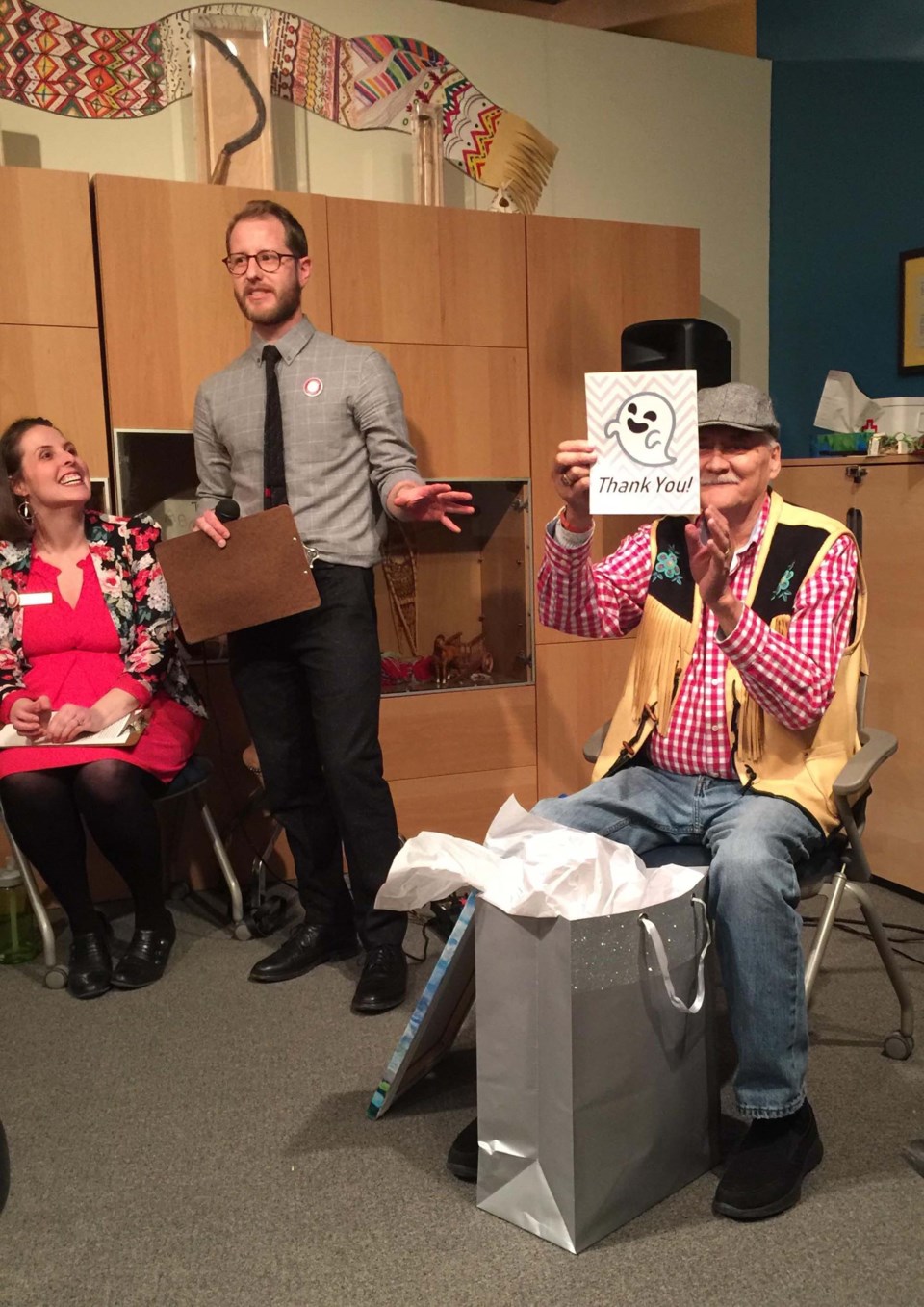It’s always time to learn more about the Indigenous history of this country that we call Canada. Starting in September, the St. Albert Public Library will put that time on the calendar under the title: Indigenous Canada Learning Circle.
The program follows in the footsteps of the University of Alberta’s popular massive open online course also called Indigenous Canada from the Faculty of Native Studies. That course, developed and led by Indigenous scholars Dr. Tracy Bear and Dr. Paul L. Gareau, explores Indigenous histories and contemporary issues in Canada.
The library produced its own original learning series from 2018 based off of that but adapted with the generosity and wisdom of a local Elder.
“We were able to engage with an elder that we grew to love so much. Unfortunately, he passed away: that was Elder Tom Ghostkeeper, and then also a small group of Indigenous people in St. Albert helped to form what that program would look like,” began Stephanie Foremsky, the library’s public services manager.
“We worked really closely and did a lot of consultation in 2018, which led to the first course series, which was really focused on learning the content together, because at that time, we felt like it was a hard sell for people to want to take up that much of their own time to do the course. We thought that we could get more people on board to say, ‘Hey, you don't have to read the book before you come. Just come and we'll do the course together.’”
That program was held in partnership with the Musée Héritage Museum, which played host to some of the sessions. It was really connected, Foremsky continued, and a solid two-hour session every week for 12 straight weeks. Elder Ghostkeeper did ceremonies and provided guidance, but his failing health and eventual passing the following spring was a loss that needed time to overcome. That, and the pandemic, put plans for the course’s renewal on the slow path.
“We continued with some Indigenous programming with other agencies, but that momentum … we lost it,” she said, noting that other world events brought the momentum back.
“Back in the spring, around the time of the residential school findings in Kamloops, we started seeing a lot more people being like, ‘I gotta take this course. This is the time’,” she said, adding, “We definitely felt like it was the right time to probably bring the course back. But we wanted to do it in a different way.”
Without wanting to put the “emotional burden” of producing the program onto members of the local Indigenous community, the library came up with a new plan, first by getting Dana Stromberg, the city’s Indigenous relations co-ordinator, and Gwen Crouse to help introduce the project to people like Vernon Hagen of Métis Local 1904 and cross-cultural facilitator Sharon Pasula, among numerous others.
Without an Elder or Knowledge Keeper already on board to continue Ghostkeeper’s work, Stromberg insisted that Indigenous voices must be integral to the program.
The upcoming biweekly program will offer discussions of course content, while participants can learn from others and make friends and allies on the shared journey to reconciliation. The circle has a more relaxed timeline that the original program so that it can be easier for participants to take it in on their own schedules for one reason.
“The other reason for that is because I wanted to be able to give some breathing room to Indigenous community members that are taking part because it's their history and their world. They don't get to go home and just walk away from it,” Foremsky stated.
“I thought if we spread it out quite a bit more, it would be at a maybe a better pace to take care of their mental health. I also wanted to make it so that Indigenous community members that are taking part don't have to sign up to take part in every session. They can jump around. Maybe they want to speak to like this particular module topic, and maybe they want to come back in a few months and do another. I wanted to make it a lot more no strings attached.”
The bi-weekly in-person program runs Monday evenings from 6:30 to 7:30 p.m. at Forsyth Hall inside the downtown library. It commences on Sept. 13 and runs for 12 sessions, concluding Feb. 28, 2022. Attendance is free but space is limited so pre-registration is required. Visit https://sapl.libcal.com/event/3614944 to learn more and to sign up.
In a prepared statement, library CEO Peter Bailey emphasized the importance of the content of this course and the valuable role that libraries have in bringing it to the population at large.
“Libraries are centres for community conversation and have an important role to play in strengthening our community’s ability to respond to the Calls to Action of the Truth and Reconciliation Commission. We welcome everyone to this opportunity to learn together,” he said.




